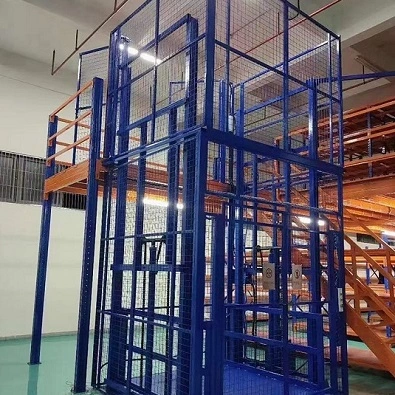Cargo elevators are a vital part of modern industrial and commercial operations, offering a safe and efficient way to move goods between different floors. Whether you’re looking to transport heavy materials in a warehouse or move large products in a retail environment, the right cargo elevator can greatly enhance your operations. It’s crucial to take into account a number of crucial aspects when making a cargo elevator purchase in order to make the greatest decision for your unique requirements. Here are five crucial factors to consider before making your purchase.
Weight Capacity
One of the most important features to consider when choosing a cargo elevator is its weight capacity. Depending on the nature of your business, you may need to move a variety of loads, ranging from lightweight items to heavy machinery. Cargo elevators come in a wide range of weight capacities, typically ranging from 500 kilograms to several tons. Selecting an elevator that can comfortably support the biggest loads you anticipate moving requires determining the maximum weight of the things you need to transfer.
If your business handles particularly heavy or bulky items, you may need to opt for a higher-capacity model. On the other hand, if your operations primarily involve lighter loads, a lower-capacity elevator may be more cost-effective while still providing the functionality you need. When evaluating your options, it’s also important to compare the cargo elevator price across different models to ensure you’re getting the best value for the features and capacity you require.
Size And Dimensions
The size of the cargo elevator’s platform is another key consideration. A larger platform may be required for bulky goods or large pallets, while a smaller platform might be suitable for more compact items. Before selecting an elevator, take measurements of the goods you plan to transport, including their height, width, and length, to ensure that they can fit on the elevator platform comfortably.
Additionally, think about the space available in your facility. Some cargo elevators are designed to fit in tight spaces, while others may require larger installation areas. It’s important to measure the space where you plan to install the elevator to ensure that it fits without compromising safety or operational efficiency.
Safety Features
Safety is a top priority when dealing with heavy goods. Cargo elevators should be equipped with several safety features to ensure both the protection of your staff and the safe transport of goods. Look for elevators that come with robust safety gates, emergency stop buttons, and automatic door sensors. These characteristics guarantee seamless operation of the elevator without sacrificing safety and help prevent accidents.
Another important safety consideration is overload protection. Many modern cargo elevators are equipped with sensors that detect when the elevator is carrying more weight than its specified capacity. In such cases, the elevator will automatically stop or prevent further movement, reducing the risk of accidents caused by overloading.
Ease Of Operation And Maintenance
A cargo elevator should be easy to operate, especially if it will be used by multiple workers throughout the day. Look for models that feature user-friendly controls and automatic functions, such as automatic door opening and closing or easy-to-use buttons for floor selection. Elevators with intuitive controls can help streamline operations and reduce the chance of user error.
Additionally, consider the ease of maintenance. All elevators require regular servicing to ensure they remain in good working order, but some models are more difficult to maintain than others. Choose an elevator that comes with easy access points for maintenance and is designed to require minimal downtime for repairs. Selecting a model from a respectable manufacturer that provides first-rate customer service and readily available spare parts is also advantageous.
Energy Efficiency
Energy consumption is an often-overlooked factor when investing in a cargo elevator. However, energy-efficient elevators can significantly reduce operating costs over time. Look for cargo elevators that feature energy-saving technology, such as regenerative drives or energy-efficient motors, which reduce electricity consumption without compromising performance.
Choosing an energy-efficient elevator is not only good for your bottom line but also for the environment. Many businesses today are looking for ways to reduce their carbon footprint, and investing in energy-efficient equipment is one effective way to achieve that goal.
Conclusion
A cargo elevator’s weight capacity, size and dimensions, safety features, convenience of use, and energy economy are all important considerations when making an investment. You may select the best cargo elevator for your company’s requirements and boost operational efficiency by keeping these important factors in mind. Remember that selecting the right elevator not only enhances your logistics and productivity but also ensures a safer and more sustainable workplace for your employees.

